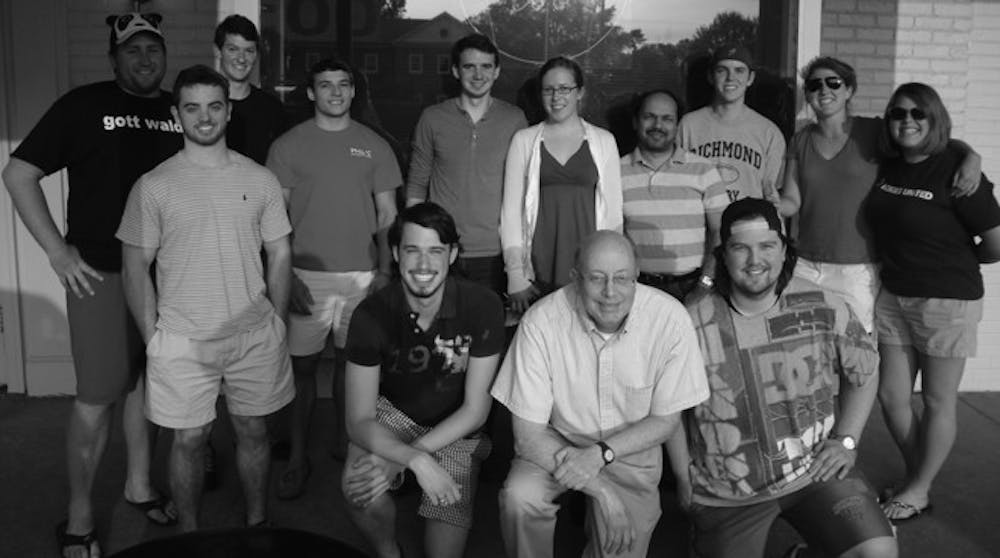John Gupton, Ph.D., University of Richmond chemistry professor has been awarded a National Institutes of Health grant to continue his cancer-related research.
The three-year, $348,572 grant from the National Cancer Institute will go toward his chemistry project "The Synthesis and Bioassay of Novel Pyrroles."
"We try to do three things: find new chemical reactions to make molecules, we try to understand how these reactions work, and finally apply these reactions to what we think may be biologically interesting molecules," Gupton said of his work as a synthetic organic chemist.
As a part of this process, Gupton and several colleagues have discovered a class of compounds that are potent anti-tumor agents. These compounds, Gupton said, work across a broad spectrum and have been used to treat breast and prostate cancer.
Gupton said the focus of his work began seven or eight years ago after he presented findings on a new compound at the University of Virginia. "One of the faculty members said, 'I think I know what the biological target is for your compound,' and from there we increased the collaboration," Gupton said.
Gupton said the department's goal was to communicate its work to the rest of the scientific community while giving students a unique learning opportunity. "We've created new and efficient ways to come up with a class of compounds called pyrroles, and we've developed some core science that allows us to get to molecules. It's a great teaching tool for students so that they're actually involved in cutting-edge science, as opposed to repeating work in a teaching lab that somebody else has done."
The grant money will contribute to the stipend students receive for summer research, as well as cover the cost of materials, equipment, travel and the assistance of a postdoctoral lab fellow. "Science is an expensive enterprise. We have resources within the university that help us, but it makes all the difference in the world when we get external funding," Gupton said.
Although the goal of this work is to present a compound that could be used in the cancer drug market, it's a long process. "Many compounds get washed out along the way. It's a long shot, but what you don't know is even if your compound doesn't make it, someone can take what you've found and build on it. It can take many years, and you could be dead and gone, but down the road, it could really be beneficial and make a difference," Gupton said.
Contact staff writer Taylor Cloonan at taylor.cloonan@richmond.edu
Enjoy what you're reading?
Signup for our newsletter
Support independent student media
You can make a tax-deductible donation by clicking the button below, which takes you to our secure PayPal account. The page is set up to receive contributions in whatever amount you designate. We look forward to using the money we raise to further our mission of providing honest and accurate information to students, faculty, staff, alumni and others in the general public.
Donate Now



